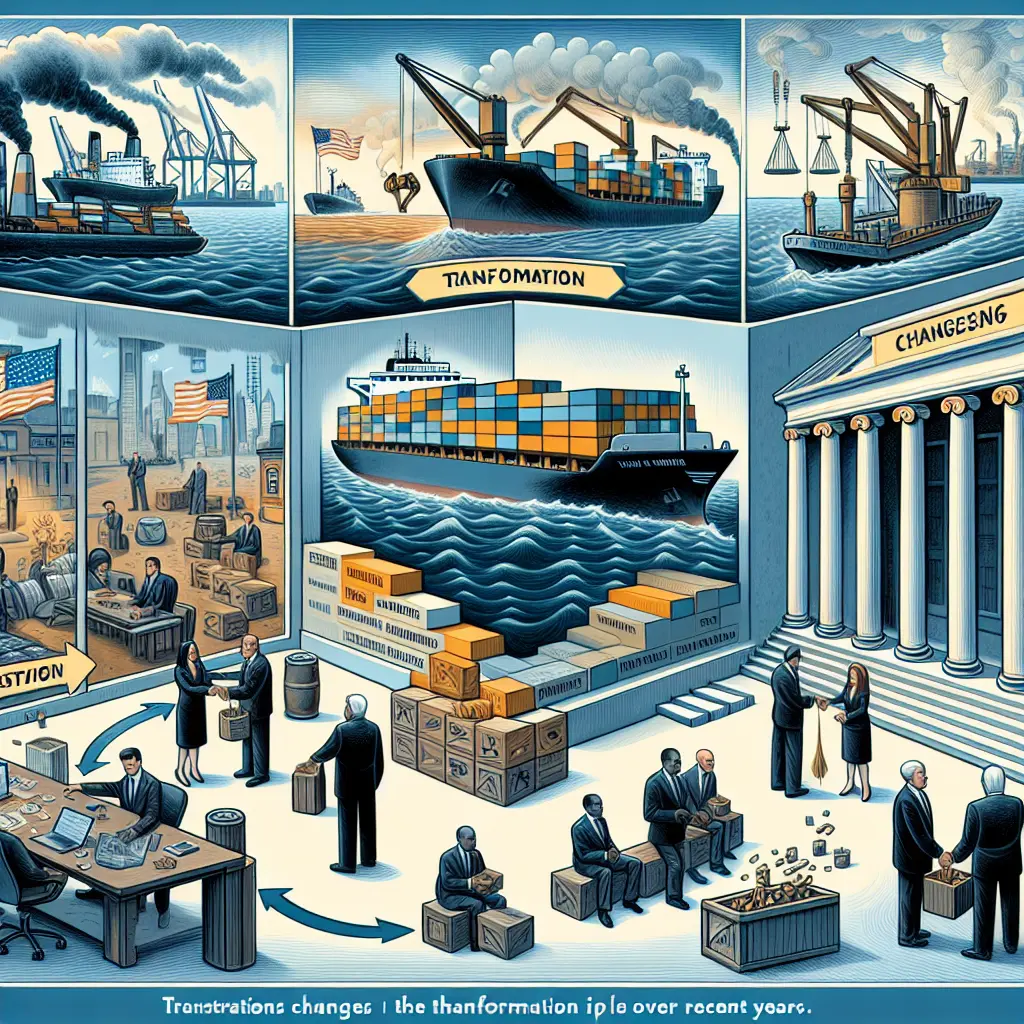
Donald Trump’s presidency marked a significant shift in U.S. trade policies, fueled by his "America First" doctrine. This approach dramatically transformed America's engagement with global trade and had far-reaching effects on international economic relations.
The Philosophical Foundation: Economic Nationalism
At the heart of Donald Trump’s trade strategy was a strong inclination towards economic nationalism. This principle prioritizes domestic industries and the overall economy through protective measures like import tariffs and trade deficit reduction. Trump's vision was clear: strengthen American jobs and manufacturing by renegotiating or withdrawing from agreements perceived as unfavorable to the U.S.
Revisiting Major Trade Agreements
One of Trump’s first actions in office was addressing what he considered unequal trade agreements. The North American Free Trade Agreement (NAFTA), long criticized by Trump as harmful to U.S. workers, was a primary target. His administration pushed for the NAFTA renegotiation, which culminated in the United States-Mexico-Canada Agreement (USMCA). This new agreement, which came into effect on July 1, 2020, aimed to bring more jobs into the United States and impose stricter rules on automobile components and labor laws, particularly increasing the minimum wage for Mexican auto workers.
The China Confrontation: Tariffs and Trade Wars
Perhaps the most dramatic element of Trump’s trade policy was his approach to China. The administration imposed China tariffs to penalize what it saw as unfair trade practices, including intellectual property theft and forced technology transfers. These tariffs affected billions of dollars worth of goods, leading to a trade war that rippled through global markets. Although disruptive, Trump’s aggressive strategy aimed to reduce the U.S.'s significant trade deficit with China and restore a balance in trade relations.
Global Trade Impact and Protectionist Policies
Trump's protectionist policies, including tariff implementation on imported goods, were controversial. Critics argued these moves would lead to trade wars that could harm global economic stability. Indeed, these actions affected global trade dynamics, leading some countries to seek new trade partnerships independent of U.S. influence.
Economic Outcomes: Trade Deficit Reduction
One of the tangible outcomes of Trump’s trade policy was an impact on the U.S. trade deficit. While the overall trade deficit did not disappear during his term, there were periods when the numbers fell significantly. For instance, the trade deficit in goods and services decreased by 0.7% to $616.8 billion in 2019. However, economists are divided on whether this reduction was due to Trump’s policies or broader global economic factors.
Controversies and Criticisms
Trump's trade policies were not without their controversies and criticisms. The use of tariffs as a tool for trade policy reform was particularly contentious. Critics argued that these import tariffs would ultimately be paid by American consumers in the form of higher prices. Furthermore, while aiming for trade deficit reduction, the approach risked alienating international allies and disrupting supply chains.
Recent Developments and Political Endorsements
In recent news, Donald Trump has continued to wield significant influence over political and economic discussions. His endorsements play a crucial role in shaping political landscapes as seen with figures like J.D. Vance, who received Trump's backing for Vice President. Moreover, high-profile endorsements from Silicon Valley figures like Elon Musk highlight the complex relationship between Trump’s economic policies and tech industry leaders.
The Broader Implications
The long-term effects of Trump's reshaping of US trade policies are still unfolding. While some praise his efforts to bring back jobs and reduce America’s reliance on foreign manufacturing, others point to the strains placed on international relations and the potential for global economic instability.
Conclusion
Donald Trump's presidency was undoubtedly transformative in terms of U.S. trade policies. Through a mix of aggressive tariff implementation, renegotiation of trade agreements like NAFTA into the USMCA, and a confrontational stance against China, Trump pursued a radical departure from previous administrations' strategies. These actions reflected his commitment to an "America First" agenda, aimed at bolstering U.S. economic independence but not without global implications.
As we continue to assess these changes, it is clear that the debate over their effectiveness and impact will persist. Whether one views these policies as beneficial or detrimental, their influence on international trade frameworks and economic strategies worldwide is undeniable.
Authored by Alexander Reid